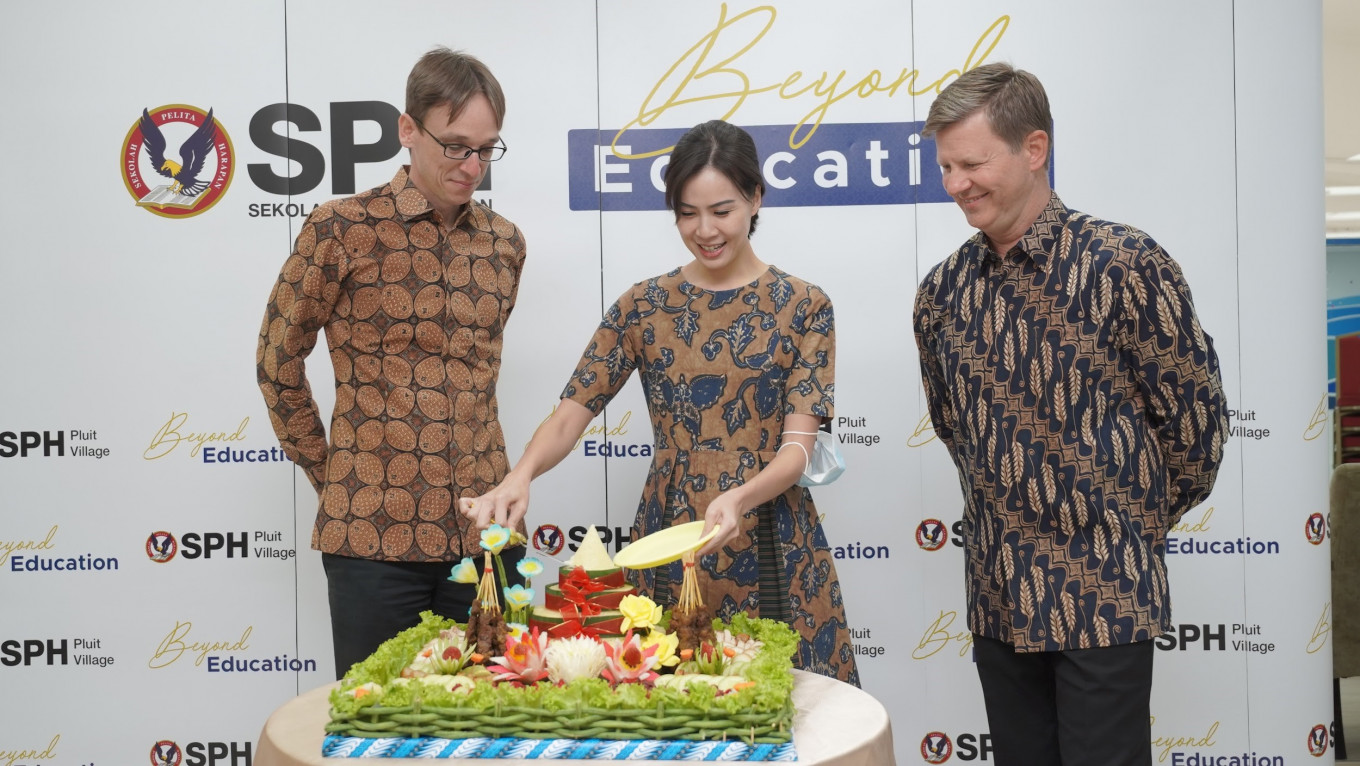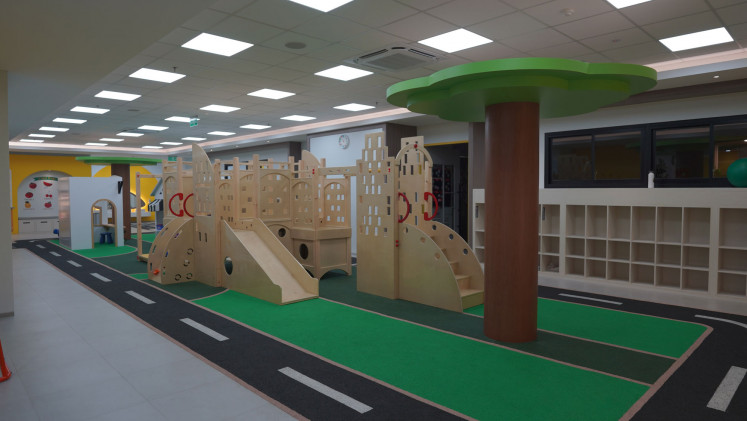Popular Reads
Top Results
Can't find what you're looking for?
View all search resultsPopular Reads
Top Results
Can't find what you're looking for?
View all search resultsHolistic approach to early childhood education to deter learning loss post-pandemic
“I think the needs [for education] have progressively grown over the years. In the beginning, it was just a matter of trying to fill in this education that is not rooted in memorization, where it was on critical and creative thinking, and you had got challenges of teachers and bureaucracy that sat in the old system.
Change text size
Gift Premium Articles
to Anyone
“I think the needs [for education] have progressively grown over the years. In the beginning, it was just a matter of trying to fill in this education that is not rooted in memorization, where it was on critical and creative thinking, and you had got challenges of teachers and bureaucracy that sat in the old system. Today, the challenges are different, you’re looking at a global market where we want to equip our young people with something else,” said James Riady, founder of Yayasan Pendidikan Pelita Harapan (YPPH).
Today, more schools are now moving to a more holistic approach to education, which essentially is a method that focuses on preparing students to meet any challenges they may face in life and in their academic careers, beyond core academics. While there are several methods to integrate a holistic approach, they are all rooted to one goal to cultivate a developing child’s physical, emotional, moral, psychological and spiritual attributes personalized to an individual’s skills and feelings. According to the School of Education at American University, holistic education leads to improved academic achievement, enhances mental and emotional well-being, increased problem-solving ability and reduces the impact of inequalities.
The trend has also reached Indonesia, where reputable schools such as Sekolah Pelita Harapan (SPH) are also integrating the same system. Stephanie Riady, executive director of YPPH explained that all of the schools under the organization believe in holistic transformational education, prioritizing the children’s spiritual, physical, emotional and social perspectives, outside of just their growth cognitively or intellectually.
“SPH Pluit is one of our most dynamic schools, we have very strong interest, very strong history and growth in this area, and lots of demand, and we need to do things to accommodate what parents are looking for. So that’s what this space is. This is us adapting to a community that wants excellent, English, international, Christian education,” said Matthew Mann, executive director of SPH.
The school held the opening ceremony for a new facility for kindergarten students in SPH in Pluit Village on Oct. 21. The event was attended by parents, representatives from SPH Pluit Village and YPPH. The play-based learning approach in early childhood education is one that combines the child’s need for play and learning. The new playground is expected to serve pupils and teachers for a more hands-on approach for all of their learning activities moving forward.
“It’s more than just having a playground, but it’s actually setting up activities that are designed to help them to learn particular things in areas that we’re concentrating on for now, bringing play and learning together, to make it one thing,” explained Tim Heading, head of school at SPH Pluit Village. He further added that the new playground is for students from K1 to K3, who are generally three to four years old.
Dewi Hayati Suhendro, the mother of a four-year-old pupil, revealed that she chose SPH because of its play and faith-based attributes. Sitting with her daughter in one of the brand-new classrooms, she beamed as she told how her daughter could tell stories in sequence, follow rules and make up her own prayers before every meal. She also added that the child was very excited about the new playground and the bigger classrooms.
While the holistic approach has worked for many across the world, the educational sector was disproportionately affected by the pandemic that forced students to convert to online schools. The world is now dealing with a learning loss in children, as described by Matt. The challenge for educators is to be very creative and energetic about trying to recover what was lost and get the children up to speed, especially those that were learning to read when the lockdown happened. According to Tim, the facility helps students get excited about coming to school, as he observed kids dragging their mothers to school because they just wanted to be in the “beautiful, colorful space,” and ready to learn.
“For kindergarten, it’s more on social and emotional behavior, that is quite far behind. So, this facility makes it a lot easier for us to work on that because now, they have to share their space. They have to learn to listen to their friends, to ask permission. Through playing together, we’re trying to get them to be a little bit more social,” added Christel van Zyl on how she planned to reduce the learning loss over the past two years for her students. She is the kindergarten coordinator and teacher at SPH Pluit Village.
She further said that the best part about the new facility was to see the kids being so happy and having a playground and space of their own because they have not had one. She revealed that they had conversations before it opened and the first day they came in, the children were equally surprised about how nice it actually was.











